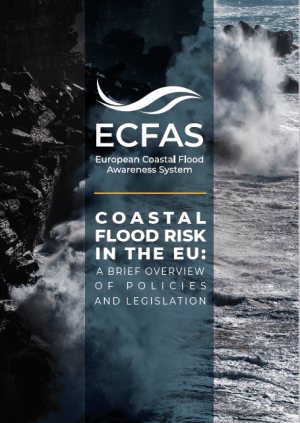Policies, plans and legal/regulatory obligations are keys to facilitate effective coastal flood risk assessments and adaptation action at all levels. At the same time, they form networks of varied current (and future) obligations for coastal stakeholders and users. In many cases, addressing these obligations requires informed, state-of-the-art information on coastal hazards and potential exposure. In ECFAS, a top-down approach was employed to identify and classify needs and obligations stemming from existing international and European policies and legislation, as well as from national/local plans and regulation for selected case studies.
In ECFAS we set out to:
– To collate existing policies and plans associated with the assessment and management of coastal flood risk in Europe. International policies to which EU member states adhere, such as the UN SDGs, the 2015 Sendai Framework for Disaster Risk Reduction and the 2016 Regional Climate Change Adaptation Framework for the Mediterranean Marine and Coastal Areas were considered as well as relevant EU policies and plans.
– To collate and analyse relevant legislation at different levels, i.e. International, European and national (selected test cases).
We have developed a policy brief that provides an analytical overview of the fast-evolving international and European policy and legislation frameworks pertaining to the assessment and reduction of coastal flood risk in the EU. International policies and Agreements to which EU Member States adhere to, such as the UN 2030 Agenda for Sustainable Development, the Sendai Framework for Disaster Risk Reduction – SFDRR 2015–2030 and the 2015 Paris Agreement, are considered together with relevant EU policies/plans for DRR, Climate Change Adaptation and ‘blue growth’ and legislation (e.g., the 2021 EU Climate Law and pertinent EU Directives).
The policy and legislation activities in ECFAS were led by Prof. Adonis Velegrakis, University of the Aegean, Greece.
You can download the Policy Brief here.

